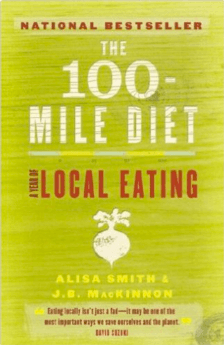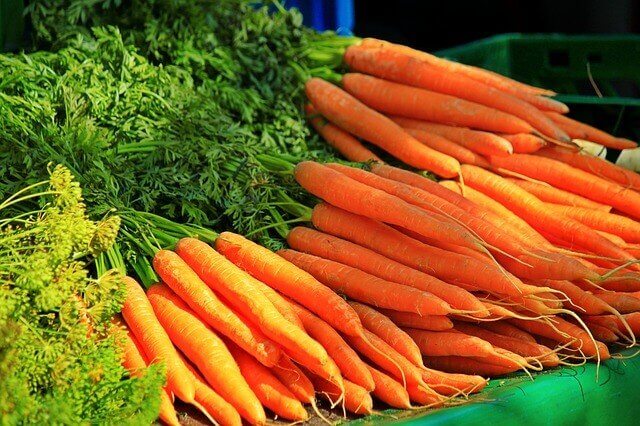Book Review: The 100 Mile Diet (first installment)
This weekend I finally got my hands on a book that I’ve been really excited to read since I heard about it. It appeals to the back-to-the-land, everything natural and homemade, wish I was born in the 1800’s, side of me.
And yet, this book is so current, so relevant, that it is worthy of an in depth look and appraisal, indeed.
It’s premise is based on these mind-blowing statistics:
“According to the Leopold Center for Sustainable Agriculture at Iowa State University, the food we eat now typically travels between 1,500 and 3,000 miles from farm to plate. The distance had increased by up to 25 percent between 1980 and 2001, when the study was published. It was likely continuing to climb.” The 100-Mile Diet: A Year of Local Eating
Armed with this knowledge and a desire to respond in a responsible way, the authors, Alisa Smith and J.B. MacKinnon, decided to embark on a one year journey, where their food could only come from reliably local sources, within a 100 mile circle around their apartment in Vancouver, Canada.
I have been devouring the book every chance I had since Sunday afternoon, when I borrowed it from a friend. As of now, I have covered the start of their adventure in March, up until the month of August. Almost half of the year.
And my impressions? How far we have strayed from a time when our ancestors purchased whole foods (ingredients, really, rather than packaged, pre-made, nutritionally void imitations of food) from local, well known farmers, butchers, fishermen, and artisans. In the book, J.B. speaks of a loss of intimacy, of knowing where our food truly originates from, of understanding the seasons and eating within their boundaries (and bounty!), of the incredible variety of breeds and species of crops that once existed and now have been pared down to one or two engineered, modified and mass produced varieties.
And I wonder, can we return to those days of intimacy, wholeness, responsibility, health and vitality? Is it even a viable option at this point?
Both the front and back covers of the book contain a quote from David Suzuki, referring to the use of petroleum, the pollution from transportation of goods, and of global warming. And yet, as my husband reminded me, the picture is bigger than just these issues, and my desire for local, organic foods.
How do we reconcile these issues with the bigger picture of the infrastructure and economic issues that lay foundational to all aspects our our modern lives? Can we really alter the structures so drastically without expecting enormous economic repercussions? Would we (would I?) actually be prepared to give up so many of the privileges and benefits that I owe to these new methods of growing, harvesting, manufacturing, transporting (endless consumer options, low prices, time and energy saving technology, food from around the world- in and out of season).
And ultimately, what would be a Biblical view of these issues? What truths of Scripture do I need to consider as I make my convictions, and then make choices for my family based on those convictions?
I shall continue to read, and will return with more of my musings when I am further through the book.




